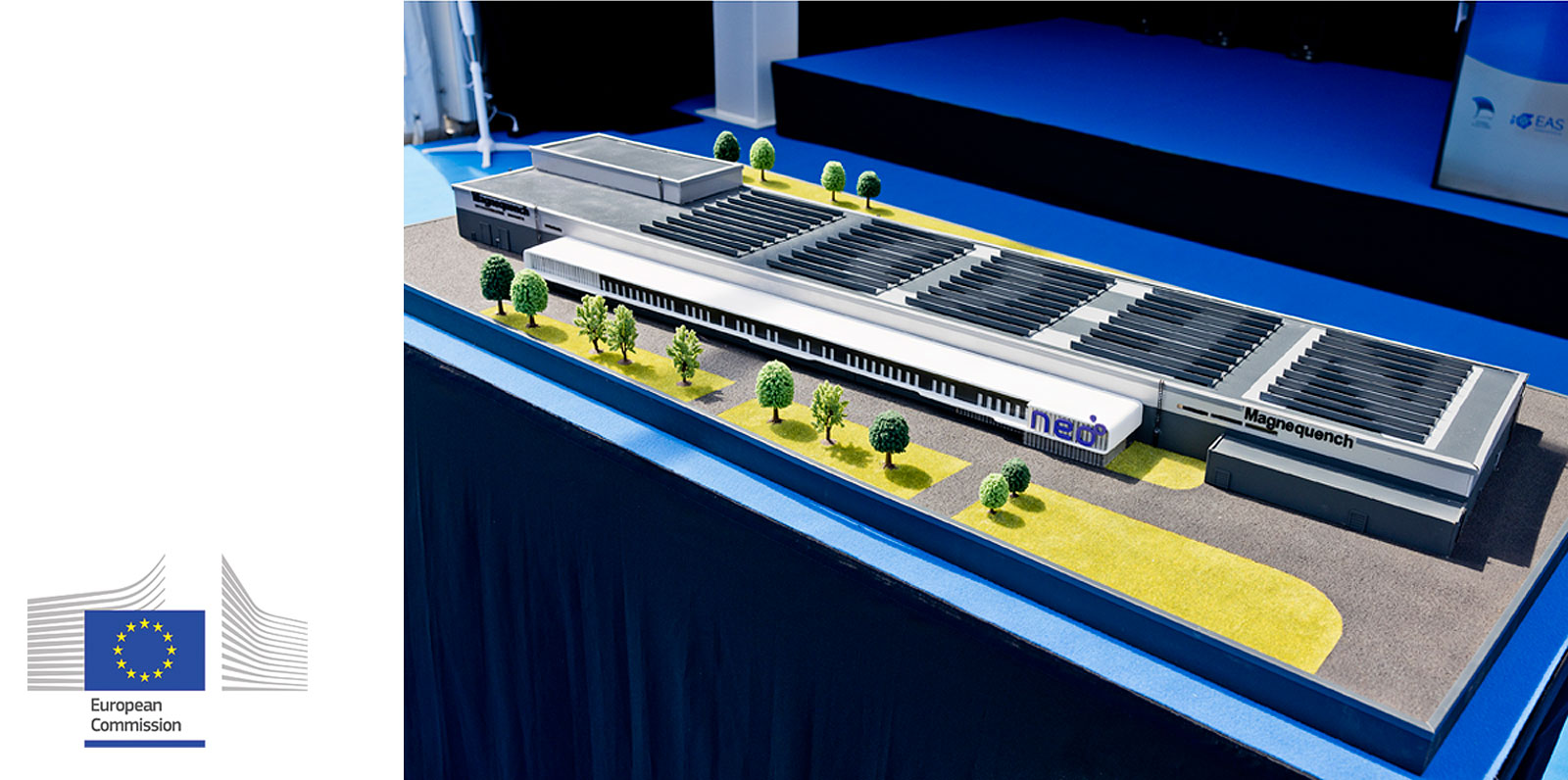Navigating our sustainability report
Manufacturing New Energy-saving Magnets for Electric Vehicle Motors in Estonia
Neo is now constructing the first magnet manufacturing facility in Europe designed to produce specialized rare earth permanent magnets for use in electric vehicles, wind turbines, and other clean energy technologies. Based in Narva, Estonia, the plant is expected to begin production of permanent rare earth magnets in 2025 sufficient to support the manufacturing of approximately 1.5 million electric cars. Neo’s expected Phase 2 production of 5,000 tonnes/year can support the manufacturing of up to 4 million electric cars.
Neo’s nearby rare earth separations plant in Sillamäe, Estonia will provide rare earth feedstock to the Narva plant from the U.S. and other sources. These high-purity magnetic rare earth oxides will be transformed into sintered neodymium-iron-boron magnets. Neo’s integrated supply chain for sintered rare earth permanent magnets will eventually include the processing of recycled end-of-life magnets and manufacturing swarf. This process will be the first of its kind in Europe.
Sintered rare earth permanent magnets are used in a wide variety of technologies that increase energy efficiency, reduce carbon dioxide emissions, and help enable the European Union’s efforts to achieve carbon neutrality. These magnets are especially integral to the drivetrains of the majority of electric vehicles manufactured today, where they increase the power and efficiency of the motors. Other rare earth magnets made by Neo are used in electric motors in battery electric, hybrid electric, and conventional vehicles, as well as in electronics, water circulation pumps, high-efficiency home appliances, and many high-efficiency industrial applications.
Joining Neo in celebrating the groundbreaking of this state-of-theart facility were notable officials from Estonia, including Narva Mayor Katri Raik, Estonian President Alar Karis, Estonian Investment Agency Director Joonas Vänto, Minister of Economic Affairs Tiit Riisalo, Minister of Regional Affairs Madis Kallas, Also participating were European Union representatives including Deputy Director General of EU Commission’s DG GROW Maive Rute and European Commission President Ursula von der Leyen. Also attending the event were ambassadors and embassy staff from multiple countries with commercial interests in Neo’s operations in Estonia, such as Canada, the United States, Germany, and France.
As EC President von der Leyen noted at the groundbreaking: “The rare earth magnets that will be produced here are indispensable to growth and innovation in sectors like electric mobility, wind energy, and microelectronics. They promise lighter batteries, less consumption of critical materials, and higher energy efficiency.”
Without employing rare earth permanent magnets in EV drivetrain motors, energy loss would increase, necessitating batteries that are 20-30% larger to achieve the same range. This would further burden the already constrained supply chain for critical battery materials and impede the economic viability of transitioning to EVs.
